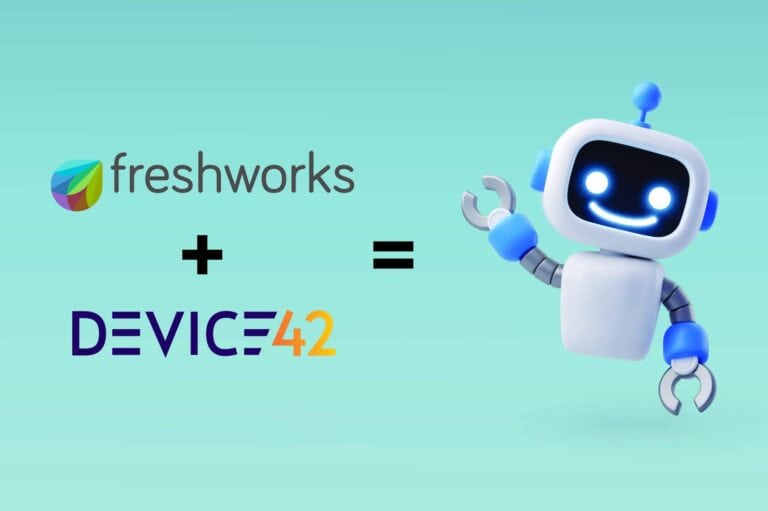Key Highlights
- Enhance your service management skills with top ITSM certifications.
- Explore renowned frameworks like ITIL, Agile, DevOps, and IT4IT.
- Boost your career prospects with globally recognized credentials.
- Gain a competitive edge in the job market.
- Improve efficiency and deliver exceptional IT services.
Table of Contents
ToggleIntroduction
Technology focused businesses need good service management. IT service management (ITSM), based on best practices, helps deliver IT services smoothly. This blog looks into ITSM certifications. It will provide you with the information needed to pick the right course for your career goals.

Exploring Top ITSM Certification Courses
Join the journey to discover popular ITSM certification courses for different career levels. If you are new to IT or a skilled leader, there is a certification just for you. These courses will give you the skills and knowledge needed to succeed in IT service management.
1. ITIL 4 Foundation – A Great Place to Start
The ITIL 4 Foundation certification is your first step into the world of IT service management. This foundation training helps you understand important ITIL ideas, guiding principles, and best practices. When you earn the ITIL foundation certification, you show that you understand ITIL best practices well. This certification is known around the world. It boosts your credibility and creates new chances in the area of IT service delivery. To obtain the ITIL 4 Foundation certification, you can enroll in accredited training courses offered by various training providers such as AXELOS, PeopleCert, and ITIL Training Zone. These courses provide comprehensive study materials and guidance to help you prepare for the certification exam and successfully earn your ITIL 4 Foundation certification.
2. Bridging Agile and ITSM
Agile methods are changing how we manage projects. They are now being used more in IT service management. The Agile Service Management training course helps connect these two areas. It shows you how to use agile best practices in delivering IT services. You will learn to improve flexibility, responsiveness, and focus on the customer in your IT operations.
For those interested in obtaining Agile Service Management certification or training, there are several resources available. One option is to check out online platforms such as Udemy or Coursera, where you can find courses specifically tailored to Agile Service Management. Additionally, organizations like the International Association of IT Service Management offer certification programs in Agile Service Management that can be completed either online or through in-person training sessions. By exploring these resources, you can unlock the best ITSM certification courses and further enhance your skills in agile project management.
3. DevOps Foundation Enhancements Through Collaboration
The DevOps Foundation certification aims to improve teamwork between development and operations teams. This helps to make IT service delivery smoother. With this certification, you learn the basics of DevOps. This includes automation, continuous integration, and continuous delivery. You also need to know about site reliability engineering (SRE). This knowledge helps you build and take care of strong and trustworthy IT systems.
If you are interested in obtaining a DevOps certification or training, there are several reputable resources available. Some popular options include online platforms like Udemy, Coursera, and Pluralsight, which offer comprehensive courses on DevOps practices and principles. Additionally, professional organizations such as the DevOps Institute and the ITSM Academy provide certification programs specifically tailored to IT service management professionals looking to enhance their skills in DevOps. By exploring these options, you can find the best ITSM certification courses that suit your learning needs and career goals.
The DevOps Foundation certification is an entry-level credential that provides a comprehensive understanding of key DevOps principles and practices. This certification is offered by multiple organizations, including:
- DevOps Institute – Offers a thorough introduction to DevOps culture, focusing on collaboration, automation, and measurement. More info here.
- PeopleCert – Provides foundational knowledge essential for any DevOps role, highlighting the importance of continuous delivery and automation. Learn more.
- EXIN – Focuses on the practical application of DevOps principles in the workplace, with an emphasis on automation and continuous improvement. Find out more.
4. IT4IT and Structuring IT as a Business Operation
The IT4IT™ Certification by The Open Group is an industry-recognized credential that demonstrates expertise in the IT4IT Reference Architecture, a framework that provides a comprehensive blueprint for managing the digital value chain in IT organizations. This certification equips professionals with the knowledge to optimize IT operations and align them with business goals, emphasizing efficient value stream management across the entire IT lifecycle. By earning this certification, IT professionals can enhance their strategic impact within organizations, ensuring that IT delivers maximum value to the business.
For more details, visit the IT4IT Certification page.
5. CompTIA IT Fundamentals
The CompTIA IT Fundamentals (ITF+) certification is an ideal starting point for those considering a career in IT, as it provides a broad understanding of essential IT concepts. The certification covers topics such as basic computing, IT infrastructure, software development, database fundamentals, and cybersecurity, making it perfect for students, career changers, and professionals seeking to build a foundational knowledge of IT. Earning the ITF+ certification can help individuals assess their interest in IT and pave the way for more advanced certifications and career paths.
For more details, visit the CompTIA IT Fundamentals page.

Deep Dive into ITIL Certifications
ITIL has more than just the basic level. It provides different certifications for your specific job goals. These advanced certifications allow you to focus on areas such as professional management, strategic leadership, and becoming an expert in IT service management.
1. ITIL 4 Managing Professional: For the ITSM Leaders
The ITIL 4 Managing Professional certification is for IT professionals who want to become leaders. This professional certification helps you learn how to manage IT services, teams, and stakeholders well during the service lifecycle. If you want to be an IT leader, this certification gives you the knowledge you need to succeed in tough IT management jobs.
2. ITIL 4 Strategic Leader: Visionaries of Digital Strategy
The ITIL 4 Strategic Leader certification is designed for people with experience who work on connecting IT strategy to business goals. As a strategic leader, you will learn how to handle the challenges of digital change and use IT to help a business grow. This certification focuses on how a complete business strategy includes IT as an important part of being successful.
3. ITIL Master Certificate: Achieving ITSM Excellence
The ITIL Master Certificate is the highest goal in IT service management. This certification is for IT professionals who have a lot of experience and know a lot about ITSM practices. Earning the ITIL Master Certificate shows that you are skilled and dedicated to providing great IT services. Usually, people going for this certification have many years of experience in leading and managing IT services.

The Agile and DevOps Synergy in ITSM
Agile and DevOps are two strong methods that can greatly improve ITSM practices. They help build a better IT service model that is more responsive, efficient, and agile. Let’s look at how they contribute to this goal.
1. Agile Project Management for ITSM
Bringing together agile service management with project management makes IT service delivery more flexible and adaptable. This method helps IT teams quickly respond to changing business needs. It also allows them to provide value step by step. IT service management gains from Agile’s cycle of improvement, focusing on ongoing progress and putting the customer first in service delivery.
2. Embracing DevOps Principles in IT Services
Bringing DevOps Foundation principles into IT services helps development and operations teams work together. This teamwork makes process design, automation, and continuous delivery easier. As a result, companies can deliver products faster and improve IT service management. Businesses can eliminate barriers between teams when they use DevOps. This boosts communication and makes IT operations more efficient.
IT4IT Certification: A Comprehensive IT Management Framework
The IT4IT certification offers a complete guide for handling the whole IT value chain. You can learn about its reference architecture. This will help you use it for better IT service management.
1. Understanding the IT4IT Reference Architecture
The IT4IT Foundation certification helps you learn about the IT4IT Reference Architecture. This model is useful for managing the IT value chain. You will see how IT processes, functions, and abilities work together for a complete IT management method. The reference architecture gives everyone a shared language and best practices for managing IT. This promotes consistency and efficiency in the organization.
2. Leveraging IT4IT for Efficient IT Service Management
By using the IT4IT framework, organizations can greatly improve their service management. The IT4IT certification gives you the knowledge to make IT processes better, boost service delivery, and connect IT strategy with business goals. By following IT4IT principles, organizations can be more agile, responsive, and cost-effective in their IT operations.

CompTIA’s Role in ITSM Skill Development
CompTIA offers a suite of certifications that cater to specific domains within IT, strengthening skills essential for effective IT service management. These certifications enhance your understanding of networking, security, and other crucial aspects of IT, enabling you to contribute to a robust and secure IT service environment.
|
Certification |
Focus Area |
Relevance to ITSM |
|
CompTIA Network+ |
Networking fundamentals |
Essential for understanding network infrastructure and ensuring seamless IT service delivery. |
|
CompTIA Security+ |
Security best practices |
Crucial for safeguarding IT services and protecting sensitive data. |
|
CompTIA A+ |
Technical support and troubleshooting |
Provides skills to resolve technical issues and ensure smooth IT service operations. |
1. CompTIA Network+: Building the Foundation
The CompTIA Network+ certification provides IT professionals with a solid base in networking. This knowledge is key for good IT service management. Knowing networking concepts helps with smooth connections and the flow of data. It also makes sure that IT service delivery is reliable. When you earn this certification, you learn how to manage, fix, and improve network systems. This is important for supporting IT services well.
2. CompTIA Security+: Ensuring IT Service Integrity
Security is very important in IT service management. The CompTIA Security+ certification proves that you understand security best practices, how to deal with threats, and risk management. Taking care of IT service infrastructure and data is essential for keeping stakeholder value and making sure business processes run smoothly. This certification shows that you are dedicated to protecting the confidentiality, integrity, and availability of IT services.
Conclusion
In the field of IT Service Management (ITSM), having the right certifications can help you grow in your career. Courses like ITIL 4 Foundation, Agile Service Management, and DevOps give you a chance to build your skills and knowledge. Whether you are experienced in IT or just beginning, these courses offer helpful insights and strategies to succeed in the changing world of IT. By learning about Agile and DevOps practices, along with important frameworks like IT4IT, you can handle the challenges of IT service management well. So, take the step to unlock your potential with the best ITSM certification courses and boost your career.

Frequently Asked Questions
1. How do ITSM certifications enhance my IT career?
ITSM (IT Service Management) training and certifications are invaluable assets that showcase your expertise to potential employers. These credentials not only enhance your career prospects but also open doors to higher earning potentials. By obtaining ITSM certifications, IT professionals can establish credibility, gain trust from employers, and distinguish themselves from their peers in a competitive job market.
Moreover, ITSM certifications validate your proficiency in managing IT services efficiently and aligning them with business goals. They demonstrate your commitment to continuous learning and professional development in the field of IT service management. Employers value certified professionals for their specialized skills and knowledge, making them more desirable candidates for rewarding job opportunities. In today’s fast-paced technological landscape, staying updated with industry best practices through ITSM training is essential for career advancement and long-term success in the IT industry.
2. Can I pursue ITSM certifications without an IT background?
Entry-level certifications such as ITIL Foundation and CompTIA IT Fundamentals are excellent starting points for individuals embarking on a career in IT. These certifications provide a solid foundation upon which to build your knowledge and skills. As you gain experience in the field, you can then shift your focus towards IT service management. There are advanced certification programs available at various levels that can help you deepen your expertise in this area.
IT service management certifications such as ITIL Intermediate, Certified Information Systems Auditor (CISA), Certified Information Security Manager (CISM), and Project Management Professional (PMP) are highly regarded in the industry. These certifications demonstrate your proficiency in managing IT services effectively, ensuring alignment with business goals, and implementing best practices for delivering quality services to users.
Moreover, pursuing specialized certifications like Cisco Certified Network Associate (CCNA) or AWS Certified Solutions Architect can further enhance your skill set and open up new career opportunities in networking, cloud computing, cybersecurity, and other specialized areas within the IT field.
Continuing education and staying abreast of the latest technological advancements are essential for IT professionals to remain competitive in the ever-evolving industry. By investing in ongoing training and obtaining relevant certifications, you can not only advance your career but also contribute significantly to the success of your organization through improved IT service delivery and innovation.
3. What is the difference between ITIL and IT4IT certifications?
The ITIL framework focuses on implementing best practices for IT service management, aiming to enhance the quality of services provided. It provides guidelines on various aspects such as service strategy, design, transition, and operation. On the contrary, the IT4IT Foundation certification offers a broader framework that aligns IT services with business objectives. This framework emphasizes the end-to-end value chain of IT services, from strategy to design, delivery, and continual improvement. Both certifications are vital for different aspects of managing and delivering IT services effectively.
ITIL certification is beneficial for professionals looking to understand and implement standardized processes in their organizations to improve service delivery and customer satisfaction. On the other hand, IT4IT Foundation certification is ideal for individuals seeking a more holistic approach to managing IT services that directly contribute to achieving business goals. By combining these certifications, professionals can gain comprehensive knowledge and skills to excel in IT service management and aligning IT with organizational objectives.
4. How do Agile and DevOps contribute to ITSM?
Agile service management and DevOps Foundation are key methodologies in enhancing IT service delivery within the ITSM framework. Agile service management focuses on flexibility and customer-centricity for quick adaptation to changing requirements, while DevOps emphasizes collaboration and process automation for efficiency.
By incorporating Agile principles, organizations can streamline service transitions, enhance services based on feedback, and improve IT service agility. Adopting the DevOps approach promotes teamwork, communication, and automation for faster high-quality service delivery.
These methodologies work together to drive operational excellence and meet evolving business needs. Their synergy results in improved service levels, increased productivity, and better alignment with business objectives in the ITSM landscape.





